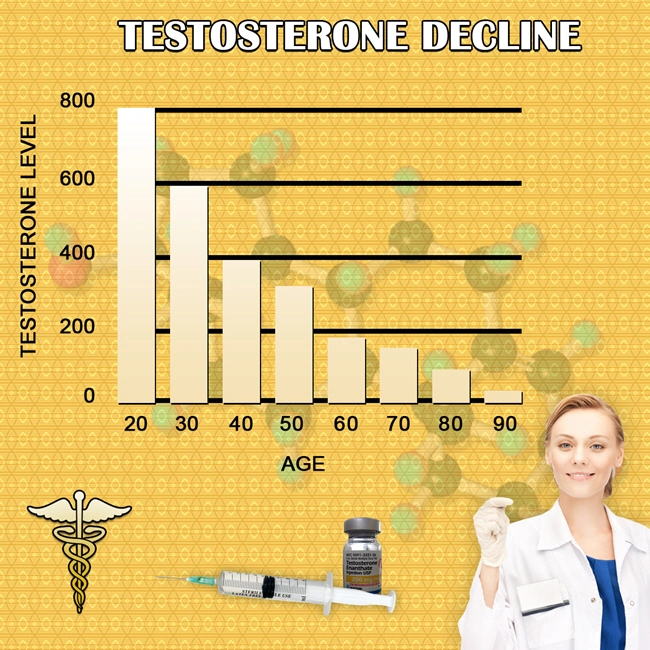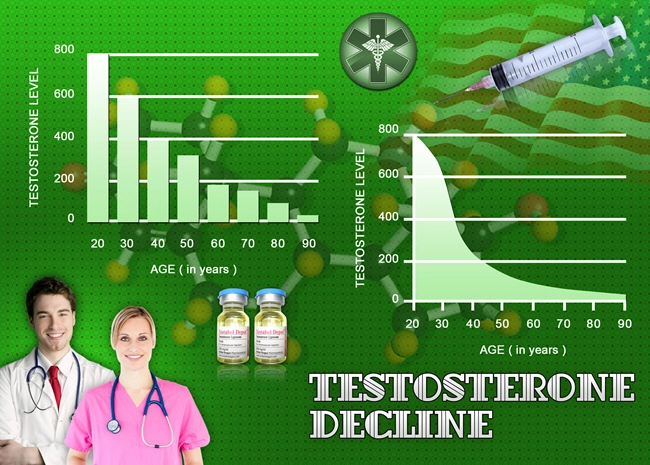
Introduction to Fortesta Testosterone Gel
Fortesta is a topical testosterone gel approved by the FDA for the treatment of low testosterone levels in men, a condition medically known as hypogonadism. This gel is applied to the skin, where it is absorbed into the bloodstream, thereby increasing testosterone levels. While Fortesta is primarily used to address symptoms of low testosterone, such as decreased libido, fatigue, and mood disturbances, its effects on other physiological parameters, including blood sugar levels, are of significant interest to healthcare providers and patients alike.
The Link Between Testosterone and Blood Sugar
Testosterone plays a crucial role in regulating various bodily functions, including metabolism. Research has indicated that testosterone levels can influence insulin sensitivity and glucose metabolism. Low testosterone levels have been associated with an increased risk of developing type 2 diabetes, a condition characterized by elevated blood sugar levels due to insulin resistance or insufficient insulin production.
Fortesta's Potential Impact on Blood Sugar Levels
Given the relationship between testosterone and blood sugar regulation, it is important to consider how Fortesta might affect these levels in American men. Some studies suggest that testosterone replacement therapy, including the use of Fortesta, can improve insulin sensitivity and glycemic control in men with hypogonadism. This improvement could potentially lower the risk of developing diabetes or help manage existing diabetes more effectively.
However, the effects of testosterone therapy on blood sugar levels can vary among individuals. Factors such as the patient's baseline testosterone levels, the presence of other health conditions, and lifestyle factors can influence the outcomes of Fortesta treatment. Therefore, it is crucial for men using Fortesta to monitor their blood sugar levels regularly and work closely with their healthcare providers to manage any changes.
Clinical Evidence and Considerations
Clinical studies have provided mixed results regarding the impact of testosterone therapy on blood sugar levels. Some research has shown a beneficial effect, with improved insulin sensitivity and reduced blood sugar levels in men receiving testosterone treatment. Other studies, however, have not observed significant changes in glycemic control.
It is also important to note that testosterone therapy, including Fortesta, can have side effects that may indirectly affect blood sugar levels. For example, changes in body composition, such as increased muscle mass and decreased fat mass, can influence insulin sensitivity. Additionally, testosterone therapy can affect lipid profiles, which are closely linked to metabolic health.
Monitoring and Management Strategies
For American men using Fortesta, regular monitoring of blood sugar levels is essential. This can be achieved through routine blood tests and, if necessary, continuous glucose monitoring devices. Men with diabetes or at risk of developing diabetes should work closely with their healthcare providers to adjust their diabetes management plan as needed.
Lifestyle modifications, such as maintaining a healthy diet, regular exercise, and weight management, are also crucial for optimizing the benefits of Fortesta and managing blood sugar levels effectively. These lifestyle factors can enhance the positive effects of testosterone therapy on metabolic health.
Conclusion
Fortesta testosterone gel offers a valuable treatment option for American men with low testosterone levels. While it has the potential to improve insulin sensitivity and glycemic control, its effects on blood sugar levels can vary among individuals. Regular monitoring and a comprehensive management plan, including lifestyle modifications, are essential for maximizing the benefits of Fortesta while minimizing potential risks. Men considering or currently using Fortesta should consult with their healthcare providers to ensure safe and effective use of the therapy.
Contact Us Today For A Free Consultation
Dear Patient,
Once you have completing the above contact form, for security purposes and confirmation, please confirm your information by calling us.
Please call now: 1-800-380-5339.
Welcoming You To Our Clinic, Professor Tom Henderson.

- Fortesta: Enhancing Skin Health and Vitality in American Men [Last Updated On: March 18th, 2025] [Originally Added On: March 18th, 2025]
- Fortesta Gel: Enhancing Vitality and Health in American Men with Low Testosterone [Last Updated On: March 19th, 2025] [Originally Added On: March 19th, 2025]
- Fortesta Gel: Enhancing Athletic Performance in American Men Through Testosterone Supplementation [Last Updated On: March 19th, 2025] [Originally Added On: March 19th, 2025]
- Fortesta: Enhancing Sleep Quality in American Men with Low Testosterone [Last Updated On: March 20th, 2025] [Originally Added On: March 20th, 2025]
- Fortesta Gel: Safe Testosterone Replacement for Hypogonadism in American Men [Last Updated On: March 20th, 2025] [Originally Added On: March 20th, 2025]
- Fortesta: Enhancing Libido and Sexual Performance in Men with Hypogonadism [Last Updated On: March 20th, 2025] [Originally Added On: March 20th, 2025]
- Fortesta: Topical Gel for Men's Low Testosterone Treatment and Application Guide [Last Updated On: March 21st, 2025] [Originally Added On: March 21st, 2025]
- Fortesta: Enhancing Weight Management Through Testosterone Therapy in Men [Last Updated On: March 21st, 2025] [Originally Added On: March 21st, 2025]
- Fortesta Gel: Enhancing Life Quality for Men with Chronic Fatigue Syndrome [Last Updated On: March 22nd, 2025] [Originally Added On: March 22nd, 2025]
- Fortesta: Revolutionizing ED Treatment with Testosterone Gel for American Men [Last Updated On: March 22nd, 2025] [Originally Added On: March 22nd, 2025]
- Fortesta Gel: Enhancing Male Fertility Through Testosterone Supplementation in American Men [Last Updated On: March 22nd, 2025] [Originally Added On: March 22nd, 2025]
- Fortesta: Managing Low Testosterone and Diabetes in American Men [Last Updated On: March 22nd, 2025] [Originally Added On: March 22nd, 2025]
- Fortesta Gel: A Promising Treatment for Hypogonadism in American Men [Last Updated On: March 22nd, 2025] [Originally Added On: March 22nd, 2025]
- Fortesta: Impact on Prostate Health and Management Strategies for American Men [Last Updated On: March 22nd, 2025] [Originally Added On: March 22nd, 2025]
- Fortesta: Enhancing Post-Surgical Recovery in American Men Through Testosterone Therapy [Last Updated On: March 23rd, 2025] [Originally Added On: March 23rd, 2025]
- Fortesta: Enhancing Eye Health in American Men Through Testosterone Therapy [Last Updated On: March 23rd, 2025] [Originally Added On: March 23rd, 2025]
- Fortesta: Testosterone Gel's Impact on Cardiovascular Health in Men [Last Updated On: March 23rd, 2025] [Originally Added On: March 23rd, 2025]
- Fortesta Gel: A Solution for American Men Facing Andropause Symptoms [Last Updated On: March 23rd, 2025] [Originally Added On: March 23rd, 2025]
- Fortesta: Enhancing Digestive Health in American Men Through Testosterone Therapy [Last Updated On: March 23rd, 2025] [Originally Added On: March 23rd, 2025]
- Fortesta: Testosterone Gel's Role in Managing Allergies in American Men [Last Updated On: March 24th, 2025] [Originally Added On: March 24th, 2025]
- Fortesta Gel: Enhancing Vitality and Health in Aging American Men [Last Updated On: March 24th, 2025] [Originally Added On: March 24th, 2025]
- Fortesta's Role in Enhancing Liver Health for American Men with Hypogonadism [Last Updated On: March 24th, 2025] [Originally Added On: March 24th, 2025]
- Fortesta: A Potential Aid in Stress Management for American Men [Last Updated On: March 24th, 2025] [Originally Added On: March 24th, 2025]
- Fortesta Gel: Enhancing Foot Health in American Men with Low Testosterone [Last Updated On: March 24th, 2025] [Originally Added On: March 24th, 2025]
- Fortesta: Enhancing Joint Health in American Men with Low Testosterone [Last Updated On: March 25th, 2025] [Originally Added On: March 25th, 2025]
- Fortesta Gel Enhances Wound Healing in American Men: Testosterone's Role and Benefits [Last Updated On: March 25th, 2025] [Originally Added On: March 25th, 2025]
- Fortesta: Topical Testosterone Gel for Treating Hypogonadism in Men [Last Updated On: March 25th, 2025] [Originally Added On: March 25th, 2025]
- Fortesta: A Promising Therapy for Autoimmune Disorders in Men with Hypogonadism [Last Updated On: March 25th, 2025] [Originally Added On: March 25th, 2025]
- Fortesta: Enhancing Life Quality for Men Over 50 with Low Testosterone [Last Updated On: March 25th, 2025] [Originally Added On: March 25th, 2025]
- Fortesta Gel: Enhancing Skin Elasticity in American Men Through Testosterone Therapy [Last Updated On: March 26th, 2025] [Originally Added On: March 26th, 2025]
- Fortesta Testosterone Gel: Effects on Hair Growth in American Men [Last Updated On: March 26th, 2025] [Originally Added On: March 26th, 2025]
- Fortesta: Boosting Testosterone and Immune Health in American Men [Last Updated On: March 26th, 2025] [Originally Added On: March 26th, 2025]
- Fortesta: Revolutionizing Testosterone Therapy for Men with Inflammatory Conditions [Last Updated On: March 26th, 2025] [Originally Added On: March 26th, 2025]
- Fortesta Use in American Men: Respiratory Health Risks and Management Strategies [Last Updated On: March 26th, 2025] [Originally Added On: March 26th, 2025]
- Fortesta: Enhancing Bone Density in American Men with Hypogonadism [Last Updated On: March 27th, 2025] [Originally Added On: March 27th, 2025]
- Fortesta: Enhancing Mental Health in American Men with Low Testosterone [Last Updated On: March 27th, 2025] [Originally Added On: March 27th, 2025]
- Fortesta: A New Horizon in Pain Management for American Men [Last Updated On: March 27th, 2025] [Originally Added On: March 27th, 2025]
- Fortesta Gel: A New Hope for Osteoporosis Management in American Men [Last Updated On: March 27th, 2025] [Originally Added On: March 27th, 2025]
- Fortesta: Enhancing Muscle Growth with Testosterone Gel in American Men's Fitness [Last Updated On: March 27th, 2025] [Originally Added On: March 27th, 2025]
- Fortesta: Enhancing Nail Health in American Men Through Testosterone Therapy [Last Updated On: March 27th, 2025] [Originally Added On: March 27th, 2025]
- Fortesta Testosterone Gel: Enhancing Dental Health in American Men [Last Updated On: March 27th, 2025] [Originally Added On: March 27th, 2025]
- Fortesta: Enhancing Men's Hearing Health Through Testosterone Therapy [Last Updated On: March 28th, 2025] [Originally Added On: March 28th, 2025]
- Fortesta: A Novel Testosterone Therapy for Managing Arthritis in American Men [Last Updated On: March 28th, 2025] [Originally Added On: March 28th, 2025]
- Fortesta: Benefits for Low Testosterone, Potential Kidney Risks, and Management Strategies [Last Updated On: March 28th, 2025] [Originally Added On: March 28th, 2025]
- Fortesta Gel: A Promising Treatment for Muscle Wasting in American Men [Last Updated On: March 29th, 2025] [Originally Added On: March 29th, 2025]
- Fortesta: Enhancing Hair Health in American Men Through Testosterone Therapy [Last Updated On: March 29th, 2025] [Originally Added On: March 29th, 2025]
- Fortesta Gel: A Novel Approach to Managing Chronic Pain in American Men [Last Updated On: March 29th, 2025] [Originally Added On: March 29th, 2025]
- Fortesta: Enhancing Muscle Recovery in American Men with Low Testosterone [Last Updated On: March 29th, 2025] [Originally Added On: March 29th, 2025]
- Fortesta: Managing Skin Aging Effects in American Men Using Testosterone Gel [Last Updated On: March 30th, 2025] [Originally Added On: March 30th, 2025]
- Fortesta: Enhancing Joint Flexibility and Mobility in American Men [Last Updated On: March 30th, 2025] [Originally Added On: March 30th, 2025]
- Fortesta: Enhancing Cartilage Health in American Men with Testosterone Therapy [Last Updated On: April 1st, 2025] [Originally Added On: April 1st, 2025]
- Fortesta: Testosterone Gel's Impact on Ligament Health in Men [Last Updated On: April 1st, 2025] [Originally Added On: April 1st, 2025]
- Fortesta: Enhancing Recovery from Sports Injuries in American Men [Last Updated On: April 2nd, 2025] [Originally Added On: April 2nd, 2025]
- Fortesta's Impact on Tendon Health in American Men: Risks and Benefits [Last Updated On: April 2nd, 2025] [Originally Added On: April 2nd, 2025]
- Fortesta: Enhancing Muscle Strength in American Men with Low Testosterone [Last Updated On: April 6th, 2025] [Originally Added On: April 6th, 2025]
- Fortesta Gel: Alleviating Muscle Soreness in American Men Through Testosterone Therapy [Last Updated On: April 8th, 2025] [Originally Added On: April 8th, 2025]
- Fortesta Gel: Enhancing Muscle Mass and Reducing Fat in American Men [Last Updated On: April 9th, 2025] [Originally Added On: April 9th, 2025]
- Fortesta: Enhancing Muscle Tone in American Men via Testosterone Therapy [Last Updated On: April 9th, 2025] [Originally Added On: April 9th, 2025]
- Fortesta: Enhancing Stamina in Men with Low Testosterone [Last Updated On: April 9th, 2025] [Originally Added On: April 9th, 2025]
- Fortesta: Enhancing Physical Endurance in American Men through Testosterone Therapy [Last Updated On: April 10th, 2025] [Originally Added On: April 10th, 2025]
- Fortesta: Enhancing Muscle Repair in American Men with Low Testosterone [Last Updated On: April 10th, 2025] [Originally Added On: April 10th, 2025]
- Fortesta: Enhancing Muscle Function in Men with Low Testosterone [Last Updated On: April 10th, 2025] [Originally Added On: April 10th, 2025]
- Fortesta: Enhancing Muscle Growth and Performance in American Men [Last Updated On: April 11th, 2025] [Originally Added On: April 11th, 2025]
- Fortesta Gel: A Solution for Muscle Cramps Linked to Low Testosterone in Men [Last Updated On: April 11th, 2025] [Originally Added On: April 11th, 2025]
- Fortesta: Enhancing Muscle Coordination and Quality of Life in Men with Low Testosterone [Last Updated On: April 11th, 2025] [Originally Added On: April 11th, 2025]
- Fortesta: Enhancing Muscle Flexibility and Physical Performance in American Men [Last Updated On: April 14th, 2025] [Originally Added On: April 14th, 2025]
- Fortesta: Enhancing Muscle Health in Men with Low Testosterone [Last Updated On: April 15th, 2025] [Originally Added On: April 15th, 2025]
- Fortesta Gel: Boosting Muscle Vitality in American Men with Low Testosterone [Last Updated On: April 16th, 2025] [Originally Added On: April 16th, 2025]
- Fortesta Gel: Boosting Muscle Endurance in Men with Low Testosterone [Last Updated On: April 16th, 2025] [Originally Added On: April 16th, 2025]
- Fortesta Gel: Enhancing Muscle Efficiency in American Men with Low Testosterone [Last Updated On: April 17th, 2025] [Originally Added On: April 17th, 2025]
- Fortesta Gel: Enhancing Muscle Recovery and Health in American Men with Low Testosterone [Last Updated On: April 18th, 2025] [Originally Added On: April 18th, 2025]
- Fortesta: Enhancing Muscle Strength and Reducing Fatigue in American Men [Last Updated On: April 18th, 2025] [Originally Added On: April 18th, 2025]
- Fortesta Gel: Enhancing Muscle Power in American Men with Low Testosterone [Last Updated On: April 19th, 2025] [Originally Added On: April 19th, 2025]
- Fortesta Gel: Combating Muscle Atrophy in American Men with Low Testosterone [Last Updated On: April 19th, 2025] [Originally Added On: April 19th, 2025]
- Fortesta: Enhancing Muscle Resilience in American Men through Testosterone Therapy [Last Updated On: April 19th, 2025] [Originally Added On: April 19th, 2025]
- Fortesta Gel: Boosting Testosterone for Enhanced Muscle Performance in American Men [Last Updated On: April 20th, 2025] [Originally Added On: April 20th, 2025]









